Road Travel Tips are your key to unlocking incredible Vietnam adventures. SIXT.VN offers premier guidance and services to ensure smooth, memorable explorations. Discover how our expert advice elevates your road travels, turning journeys into cherished memories, with reliable transport solutions.
1. Comprehensive Road Travel Tips For Planning
1.1. What Makes A Road Trip In Vietnam Unique?
Vietnam road trips offer a chance to explore diverse landscapes, vibrant cultures, and historical sites at your own pace. The country boasts scenic routes, such as the Hai Van Pass and the coastal roads of Central Vietnam, each providing stunning views and unique experiences. Road trips allow travelers to discover hidden gems, interact with locals, and immerse themselves in the authentic Vietnamese lifestyle.
1.2. How Do I Choose The Right Vehicle For Road Travel In Vietnam?
Selecting the perfect vehicle depends on your itinerary and group size. SIXT.VN offers a variety of options:
- Motorbikes: Ideal for solo travelers or couples seeking adventure and flexibility, perfect for navigating narrow roads and scenic routes.
- Cars: Suitable for families or groups, offering comfort and safety for longer journeys on highways and exploring cities.
- SUVs: Best for rugged terrains and adventurous routes, providing ample space and power for challenging roads in mountainous regions.
1.3. What Are The Essential Items To Pack For Road Travel?
Packing smart ensures a comfortable and safe journey. Here’s a list of essentials:
- Navigation Tools: GPS device or smartphone with reliable map apps, crucial for navigating unfamiliar routes.
- First Aid Kit: Including bandages, antiseptic wipes, pain relievers, and any personal medications for minor injuries or ailments.
- Vehicle Maintenance Tools: Basic tools like a tire repair kit, jumper cables, and a flashlight for addressing minor mechanical issues.
- Snacks And Water: Keeping hydrated and energized with non-perishable snacks and bottled water, especially in remote areas.
- Comfort Items: Pillows, blankets, and entertainment options like books or music for a more enjoyable ride.
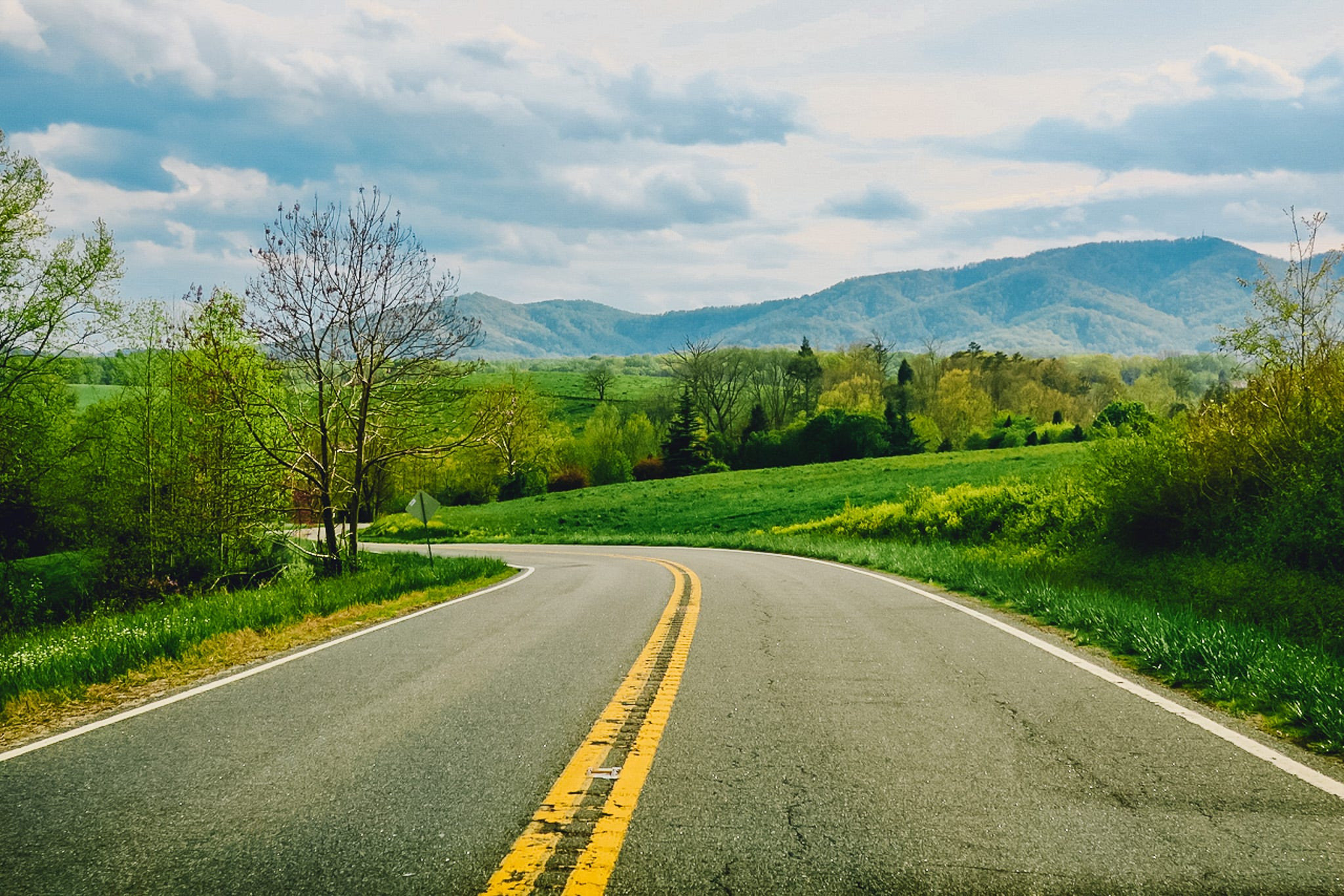 Backroads Route
Backroads Route
1.4. How Can I Plan A Detailed Itinerary For Vietnam Road Travel?
A well-planned itinerary is crucial for a successful road trip. Follow these steps:
- Research Destinations: Identify key attractions, scenic routes, and cultural sites you want to visit in Vietnam.
- Map The Route: Use online tools like Google Maps to chart the best route, considering distances, road conditions, and potential stops.
- Allocate Time: Estimate travel times between destinations, factoring in rest stops, sightseeing, and potential delays.
- Book Accommodations: Reserve hotels or guesthouses in advance, especially during peak seasons, to ensure availability and better rates.
- Plan Activities: Incorporate activities like hiking, cultural tours, and culinary experiences to enrich your journey.
According to research from the Vietnam National Administration of Tourism in 2023, planning activities enhances the overall travel experience by providing structured and engaging experiences.
1.5. What Are The Best Apps And Websites For Road Travel Information?
Utilize these resources for up-to-date information and assistance:
- Google Maps: For navigation, traffic updates, and locating points of interest.
- TripAdvisor: For reviews and recommendations on accommodations, restaurants, and attractions.
- Booking.com: For booking hotels and guesthouses along your route.
- SIXT.VN: For car rental services, travel advice, and local support during your trip.
- Local Tourism Websites: For information on local events, festivals, and travel advisories.
2. Road Travel Tips About Safety On Vietnam Roads
2.1. What Are The Key Safety Rules To Follow While Driving In Vietnam?
Driving safely in Vietnam requires awareness and caution. Key rules include:
- Obey Traffic Laws: Adhere to speed limits, traffic signals, and road signs to prevent accidents.
- Wear A Helmet: Mandatory for motorbike riders, ensuring protection in case of a collision.
- Drive Defensively: Be prepared for unpredictable traffic behavior, including motorbikes weaving through lanes and buses making sudden stops.
- Stay Alert: Avoid distractions like using your phone while driving and take frequent breaks to prevent fatigue.
- Check Weather Conditions: Monitor weather forecasts and adjust your travel plans accordingly, especially during the rainy season.
2.2. How Do I Deal With Traffic And Road Conditions In Vietnam?
Navigating Vietnamese roads can be challenging. Here are some tips:
- Stay Calm: Maintain composure in heavy traffic and avoid aggressive driving.
- Use Your Horn Judiciously: Signal your presence to other drivers, especially when overtaking or approaching intersections.
- Anticipate Hazards: Watch out for potholes, uneven surfaces, and obstacles on the road.
- Drive Slowly In Congested Areas: Reduce speed in crowded urban areas to allow for quick reactions.
- Avoid Night Driving: If possible, limit driving at night, as roads may be poorly lit and hazards more difficult to see.
2.3. What Should I Do In Case Of A Roadside Emergency?
Knowing how to handle emergencies can save time and reduce stress:
- Stay Calm: Assess the situation and ensure the safety of yourself and your passengers.
- Move To A Safe Location: If possible, move your vehicle off the road to avoid obstructing traffic.
- Call For Assistance: Contact local authorities or your rental company for help. SIXT.VN provides 24/7 support to assist with emergencies.
- Use Hazard Lights: Activate your vehicle’s hazard lights to warn other drivers of the situation.
- Provide Information: When calling for help, provide your location, a description of the problem, and any relevant details.
2.4. What Are The Essential Vietnamese Phrases For Road Travel?
Knowing basic Vietnamese phrases can be incredibly helpful:
- “Xin chào” (Hello): To greet people.
- “Cảm ơn” (Thank you): To express gratitude.
- “Tôi cần giúp đỡ” (I need help): In case of an emergency.
- “Ở đâu…?” (Where is…?): To ask for directions.
- “Bệnh viện” (Hospital): To locate a medical facility.
2.5. How Can I Ensure My Vehicle Is Maintained During A Road Trip?
Regular maintenance helps prevent breakdowns and ensures a safe journey:
- Check Tire Pressure: Ensure tires are properly inflated for optimal performance and safety.
- Monitor Fluid Levels: Regularly check engine oil, coolant, brake fluid, and windshield washer fluid levels.
- Inspect Lights: Make sure headlights, taillights, brake lights, and turn signals are working correctly.
- Listen For Unusual Noises: Pay attention to any unusual sounds from the engine, brakes, or suspension.
- Schedule Maintenance: If you’re on a long trip, schedule a service appointment at a reputable mechanic to address any potential issues.
3. Road Travel Tips About Cultural Experiences
3.1. What Are The Best Cultural Sites To Visit On A Road Trip?
Vietnam offers a wealth of cultural sites to explore:
- Hoi An Ancient Town: A UNESCO World Heritage site known for its historic architecture and vibrant atmosphere.
- Hue Imperial City: The former capital of Vietnam, featuring the Citadel, tombs, and temples.
- My Son Sanctuary: An ancient Cham temple complex, showcasing intricate stone carvings and historical significance.
- Sapa: A mountainous region with stunning landscapes and diverse ethnic minority cultures.
- Mekong Delta: Explore floating markets, traditional villages, and lush landscapes by boat.
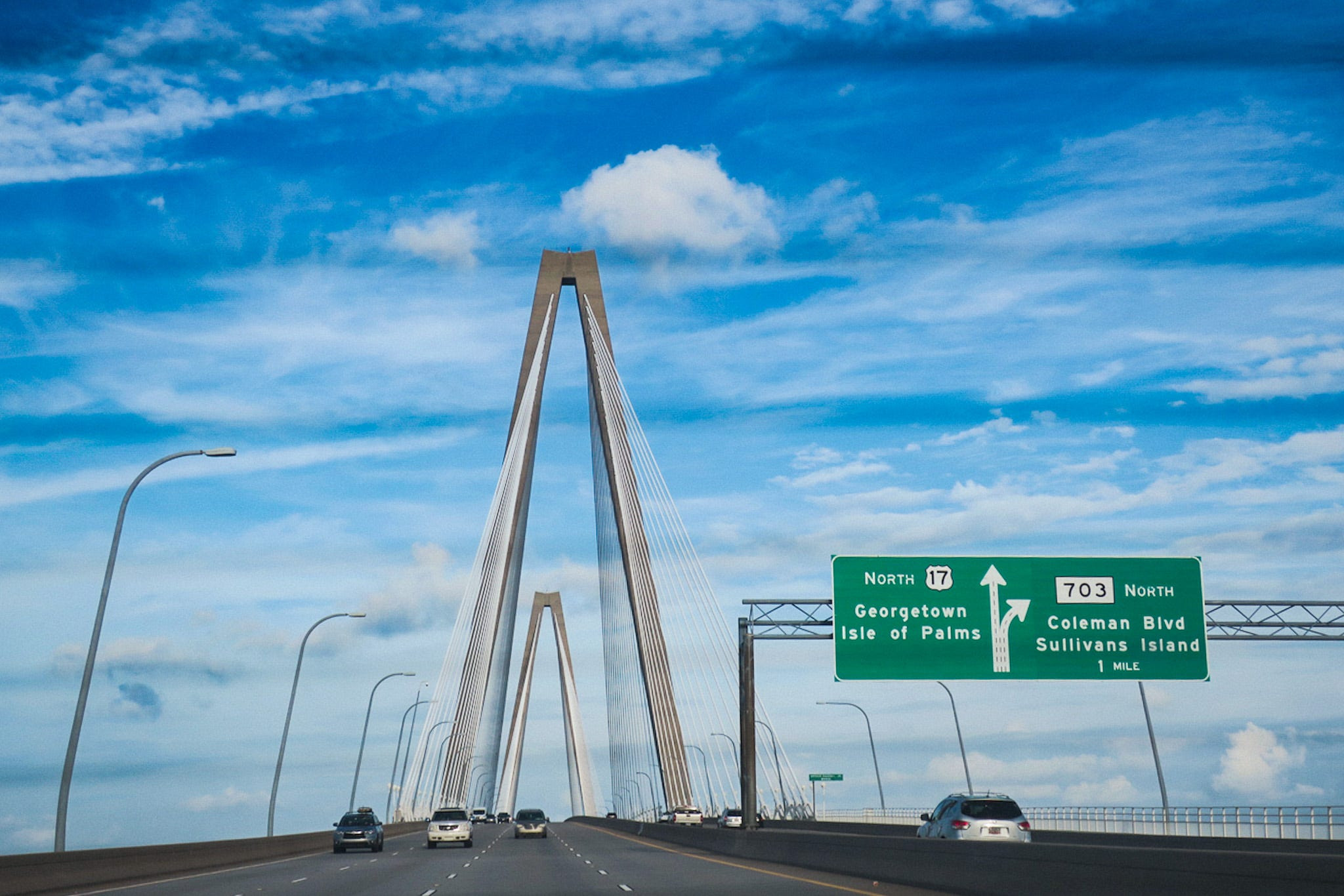 Charleston Bridge
Charleston Bridge
3.2. How Can I Respect Local Customs And Traditions?
Showing respect for local customs enhances your travel experience:
- Dress Modestly: When visiting temples or religious sites, dress respectfully, covering shoulders and knees.
- Remove Shoes: Take off your shoes before entering someone’s home or certain religious areas.
- Ask For Permission: Before taking photos of people, especially in rural areas, ask for their consent.
- Use Both Hands: When giving or receiving items, use both hands as a sign of respect.
- Learn Basic Phrases: Knowing a few Vietnamese phrases can show your interest in the local culture.
3.3. What Are The Must-Try Foods And Local Restaurants Along The Way?
Vietnamese cuisine is a highlight of any road trip. Don’t miss these dishes:
- Pho: A traditional noodle soup, available in various regional styles.
- Banh Mi: A delicious sandwich with a variety of fillings.
- Goi Cuon (Fresh Spring Rolls): A light and refreshing dish with rice paper, vegetables, and protein.
- Cao Lau: A unique noodle dish from Hoi An, featuring local ingredients.
- Bun Cha: Grilled pork served with rice noodles and dipping sauce, a Hanoi specialty.
Explore local restaurants and street food stalls for authentic flavors and culinary experiences.
3.4. How Can I Support Local Communities During My Trip?
Supporting local communities helps ensure sustainable tourism:
- Buy Local Products: Purchase souvenirs and handicrafts from local artisans.
- Eat At Local Restaurants: Dine at family-owned establishments to support local businesses.
- Stay At Local Guesthouses: Choose small, locally-owned accommodations over large hotel chains.
- Participate In Local Tours: Join tours led by local guides to learn about the area and support their livelihoods.
- Respect The Environment: Practice responsible tourism by minimizing waste and protecting natural resources.
3.5. What Are Some Unique Experiences Off The Beaten Path?
Venture beyond popular tourist spots for unique adventures:
- Visit Rural Villages: Explore remote villages to experience authentic Vietnamese culture and hospitality.
- Hike In National Parks: Discover stunning landscapes and diverse wildlife in Vietnam’s national parks.
- Attend Local Festivals: Participate in traditional festivals and cultural events to immerse yourself in local traditions.
- Take A Cooking Class: Learn to prepare Vietnamese dishes and gain insights into the local cuisine.
- Explore Local Markets: Visit bustling markets to experience the vibrant atmosphere and sample local products.
4. Practical Road Travel Tips For Budgeting
4.1. How Much Should I Budget For A Road Trip In Vietnam?
Budgeting depends on your travel style and duration. Here’s a general guideline:
- Budget Travelers: $20-$30 per day, covering basic accommodations, local food, and transportation.
- Mid-Range Travelers: $40-$60 per day, allowing for comfortable hotels, restaurant meals, and some activities.
- Luxury Travelers: $80+ per day, providing for high-end accommodations, fine dining, and private tours.
Remember to factor in vehicle rental costs, fuel expenses, entrance fees, and miscellaneous expenses.
4.2. What Are The Best Ways To Save Money On Accommodation And Food?
Save money without compromising on quality:
- Choose Local Guesthouses: Opt for budget-friendly guesthouses or homestays over international hotel chains.
- Eat At Local Eateries: Enjoy affordable and delicious meals at local restaurants and street food stalls.
- Cook Your Own Meals: If possible, prepare some of your meals to reduce dining expenses.
- Travel During Off-Peak Seasons: Avoid peak tourist seasons for lower prices on accommodations and services.
- Look For Discounts: Take advantage of discounts and special offers on attractions and activities.
4.3. How Can I Find Affordable Transportation Options?
Transportation costs can be a significant part of your budget:
- Rent A Motorbike: For solo travelers or couples, motorbikes are an affordable way to explore.
- Use Local Buses: Utilize local bus services for long-distance travel, which are cheaper than private cars.
- Share Rides: Consider sharing rides with other travelers to split transportation costs.
- Book In Advance: Reserve transportation options in advance to secure better rates.
- Negotiate Prices: Negotiate prices with taxi drivers or motorbike taxis before starting your journey.
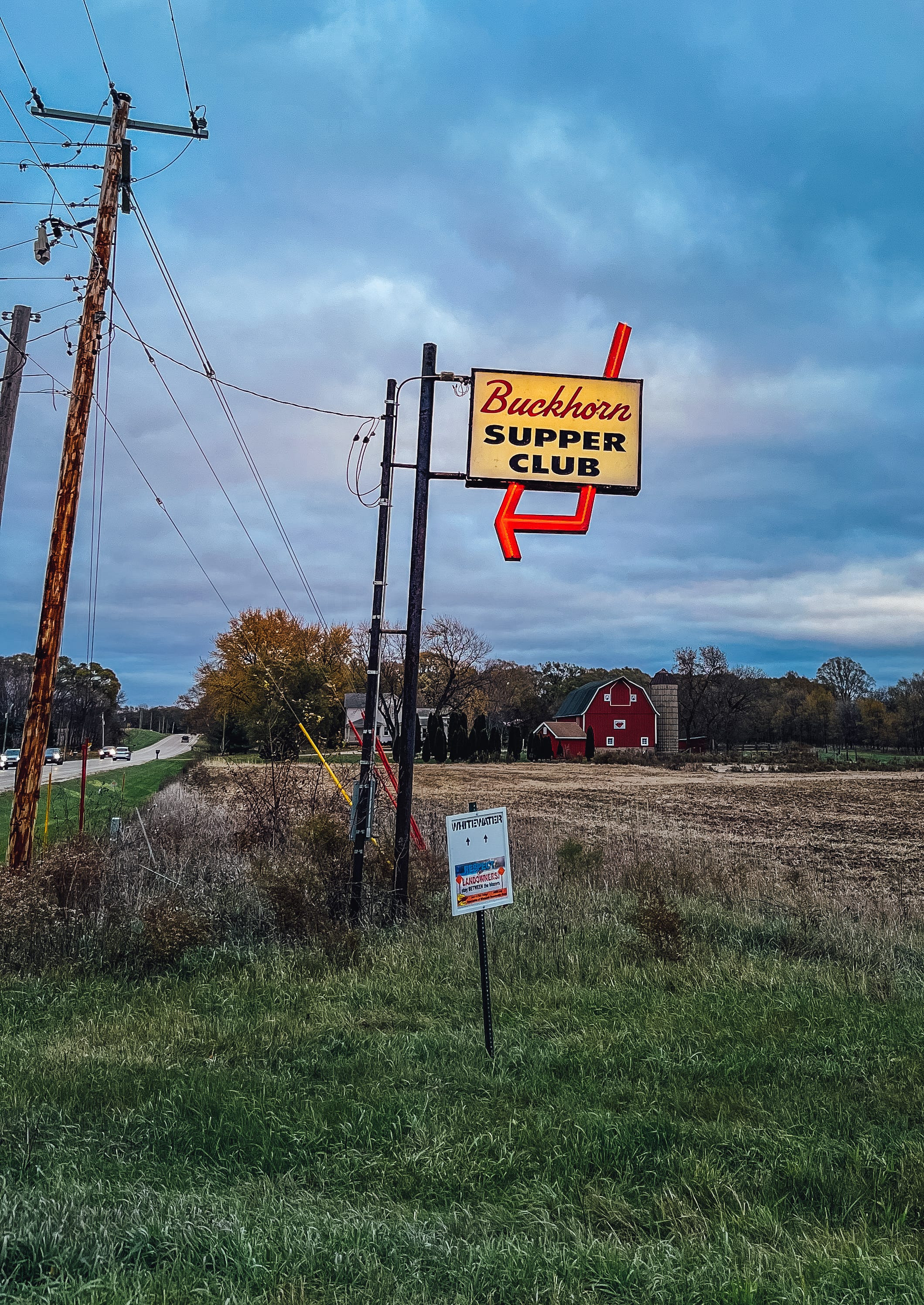 Buckhorn Turn
Buckhorn Turn
4.4. What Are The Best Free Activities And Attractions In Vietnam?
Enjoy Vietnam without spending a fortune:
- Explore National Parks: Many national parks offer free or low-cost entry, providing opportunities for hiking and nature exploration.
- Visit Temples And Pagodas: Most temples and pagodas are free to enter, offering cultural and historical insights.
- Walk Around Cities: Explore cities on foot, discovering hidden alleys, local markets, and street art.
- Relax On Beaches: Vietnam boasts numerous beautiful beaches that are free to access.
- Attend Free Events: Look for free cultural events, festivals, and performances in local communities.
4.5. How Can I Manage My Expenses Effectively?
Effective expense management ensures you stay within budget:
- Set A Daily Budget: Determine how much you can spend each day and track your expenses.
- Use A Travel App: Utilize travel apps to monitor your spending, track exchange rates, and manage your budget.
- Avoid Unnecessary Expenses: Cut back on non-essential spending, such as expensive souvenirs or luxury items.
- Carry Cash: Have a mix of cash and cards, as some places may not accept credit cards.
- Keep Receipts: Save receipts for all your expenses to track your spending and identify areas where you can save money.
5. Top Tips For Connectivity During Road Travel
5.1. How Can I Stay Connected To The Internet During My Road Trip?
Staying connected is essential for navigation and communication:
- Buy A Local SIM Card: Purchase a local SIM card with a data plan for affordable internet access.
- Use Public Wi-Fi: Take advantage of free Wi-Fi hotspots at cafes, restaurants, and hotels.
- Rent A Portable Wi-Fi Device: Rent a portable Wi-Fi device for reliable internet access on the go.
- Download Offline Maps: Download offline maps and translation apps to use without an internet connection.
- Use Mobile Data Roaming: Check with your mobile carrier for international data roaming plans.
5.2. What Are The Best Mobile Data Plans For Tourists In Vietnam?
Choose a data plan that suits your needs:
- Viettel: Offers a variety of data plans with good coverage throughout Vietnam.
- Vinaphone: Provides reliable data plans and coverage in urban and rural areas.
- Mobifone: Offers affordable data plans and decent coverage.
Compare the prices, data allowances, and validity periods of different plans to find the best option.
5.3. How Can I Find Reliable Wi-Fi Hotspots?
Locate Wi-Fi hotspots in Vietnam:
- Cafes And Restaurants: Most cafes and restaurants offer free Wi-Fi to customers.
- Hotels And Guesthouses: Many accommodations provide Wi-Fi access for guests.
- Public Spaces: Look for Wi-Fi hotspots in parks, squares, and tourist information centers.
- Wi-Fi Finder Apps: Use apps like Wi-Fi Map to find and connect to nearby Wi-Fi networks.
- Co-Working Spaces: Consider using co-working spaces for reliable and fast internet access.
5.4. What Are The Essential Apps For Communication And Navigation?
Utilize these apps for seamless communication and navigation:
- WhatsApp: For messaging and voice calls with friends and family.
- Google Translate: For translating languages and communicating with locals.
- Google Maps: For navigation, finding points of interest, and getting directions.
- Grab: For booking taxis and transportation services.
- Zalo: A popular messaging app in Vietnam for local communication.
5.5. How Can I Ensure My Devices Stay Charged On The Road?
Keep your devices powered up:
- Bring A Power Bank: Carry a portable power bank to charge your devices on the go.
- Use A Car Charger: Use a car charger to charge your devices while driving.
- Carry A Universal Adapter: Bring a universal adapter to plug into different types of outlets.
- Charge At Rest Stops: Take advantage of charging opportunities at rest stops, cafes, and hotels.
- Conserve Battery Life: Minimize battery usage by turning off unnecessary features and closing unused apps.
6. Road Travel Tips About Sustainable Practices
6.1. How Can I Minimize My Environmental Impact During Road Travel?
Travel responsibly to protect Vietnam’s natural beauty:
- Reduce Waste: Minimize single-use plastics by bringing reusable water bottles, shopping bags, and containers.
- Conserve Water: Be mindful of water usage in hotels and guesthouses.
- Use Eco-Friendly Products: Choose eco-friendly toiletries and cleaning products.
- Support Green Businesses: Patronize businesses that prioritize sustainability and environmental protection.
- Dispose Of Waste Properly: Dispose of trash in designated bins and avoid littering.
6.2. What Are The Best Eco-Friendly Accommodations And Activities?
Choose sustainable options for accommodations and activities:
- Eco-Lodges: Stay at eco-lodges that prioritize conservation and community involvement.
- Sustainable Tours: Participate in tours that promote responsible tourism and environmental awareness.
- Volunteer Programs: Join volunteer programs that support local conservation efforts.
- Visit Protected Areas: Explore national parks and protected areas while respecting their regulations.
- Choose Local Guides: Hire local guides who are knowledgeable about the environment and culture.
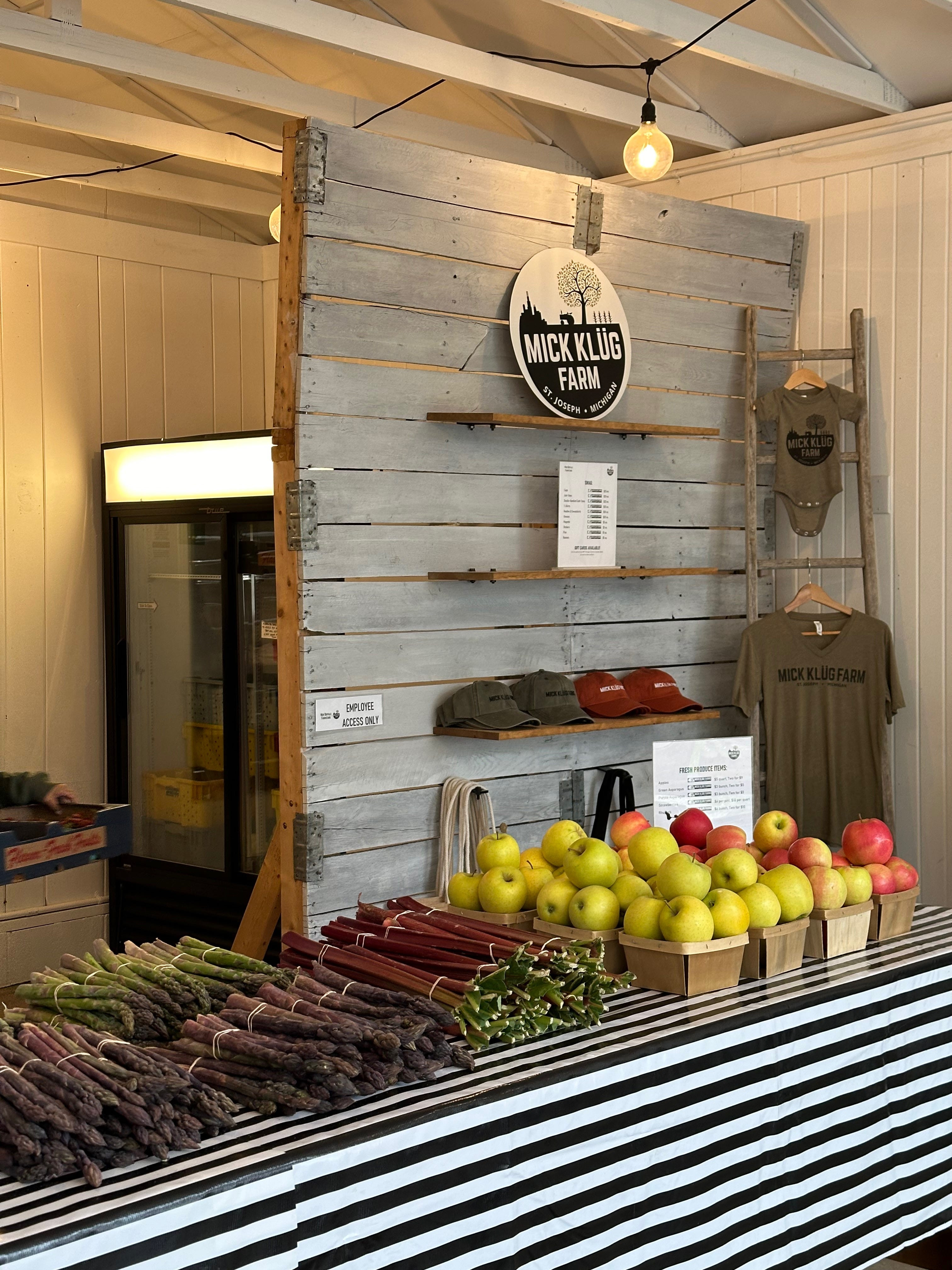 Mick Klug Farmstand
Mick Klug Farmstand
6.3. How Can I Support Local Conservation Efforts?
Contribute to local conservation initiatives:
- Donate To Conservation Organizations: Donate to organizations that work to protect Vietnam’s natural resources.
- Participate In Clean-Up Events: Join community clean-up events to remove litter and protect ecosystems.
- Educate Others: Share information about sustainable tourism and encourage others to travel responsibly.
- Report Environmental Violations: Report any environmental violations or illegal activities to local authorities.
- Respect Wildlife: Observe wildlife from a distance and avoid disturbing their habitats.
6.4. What Are The Best Practices For Responsible Wildlife Tourism?
Ensure wildlife encounters are ethical and sustainable:
- Choose Reputable Operators: Select tour operators that prioritize animal welfare and conservation.
- Avoid Animal Exploitation: Do not participate in activities that exploit or harm animals, such as riding elephants or visiting unethical animal parks.
- Observe From A Distance: Observe wildlife from a safe distance and avoid approaching or feeding them.
- Respect Habitats: Stay on marked trails and avoid disturbing animal habitats.
- Report Illegal Activities: Report any illegal wildlife trade or poaching activities to local authorities.
6.5. How Can I Promote Sustainable Tourism Among Fellow Travelers?
Encourage responsible travel practices:
- Share Information: Share tips and resources about sustainable tourism with friends and family.
- Lead By Example: Demonstrate responsible travel practices during your own trips.
- Support Sustainable Businesses: Patronize businesses that prioritize sustainability and promote their efforts.
- Engage On Social Media: Use social media to raise awareness about sustainable tourism and inspire others to travel responsibly.
- Participate In Advocacy: Advocate for policies and initiatives that promote sustainable tourism and environmental protection.
7. Road Travel Tips About Health And Wellness
7.1. What Vaccinations And Health Precautions Should I Take Before Traveling?
Protect your health with proper preparations:
- Consult A Doctor: Consult your doctor or a travel clinic to determine necessary vaccinations and health precautions.
- Get Vaccinations: Get recommended vaccinations, such as hepatitis A, typhoid, and Japanese encephalitis.
- Prevent Malaria: Take malaria prophylaxis if traveling to malaria-prone areas.
- Protect Against Mosquito Bites: Use insect repellent, wear long sleeves and pants, and sleep under a mosquito net to prevent mosquito-borne diseases.
- Pack A Medical Kit: Bring a comprehensive medical kit with essential medications and supplies.
7.2. How Can I Avoid Food And Waterborne Illnesses?
Stay healthy by following these guidelines:
- Drink Bottled Water: Only drink bottled or purified water to avoid waterborne illnesses.
- Eat At Reputable Establishments: Choose restaurants and food stalls with good hygiene practices.
- Avoid Raw Foods: Avoid eating raw or undercooked meats, seafood, and eggs.
- Wash Fruits And Vegetables: Wash fruits and vegetables thoroughly before eating.
- Use Hand Sanitizer: Use hand sanitizer regularly, especially before meals.
7.3. What Should I Do If I Get Sick While Traveling?
Know how to handle illness on the road:
- Seek Medical Attention: If you experience severe symptoms, seek medical attention immediately.
- Contact Your Insurance Company: Contact your travel insurance company for assistance and guidance.
- Rest And Hydrate: Get plenty of rest and stay hydrated by drinking fluids.
- Use Over-The-Counter Medications: Use over-the-counter medications to relieve minor symptoms.
- Follow Local Advice: Follow the advice of local healthcare professionals.
7.4. How Can I Stay Active And Maintain My Fitness Routine?
Stay fit and healthy during your road trip:
- Walk And Hike: Take advantage of opportunities for walking and hiking in scenic areas.
- Use Hotel Gyms: Use the fitness facilities at your hotel or guesthouse.
- Do Bodyweight Exercises: Perform bodyweight exercises, such as push-ups, squats, and lunges, in your room.
- Join Local Fitness Classes: Join local fitness classes or yoga sessions.
- Stay Hydrated: Drink plenty of water to stay hydrated and energized.
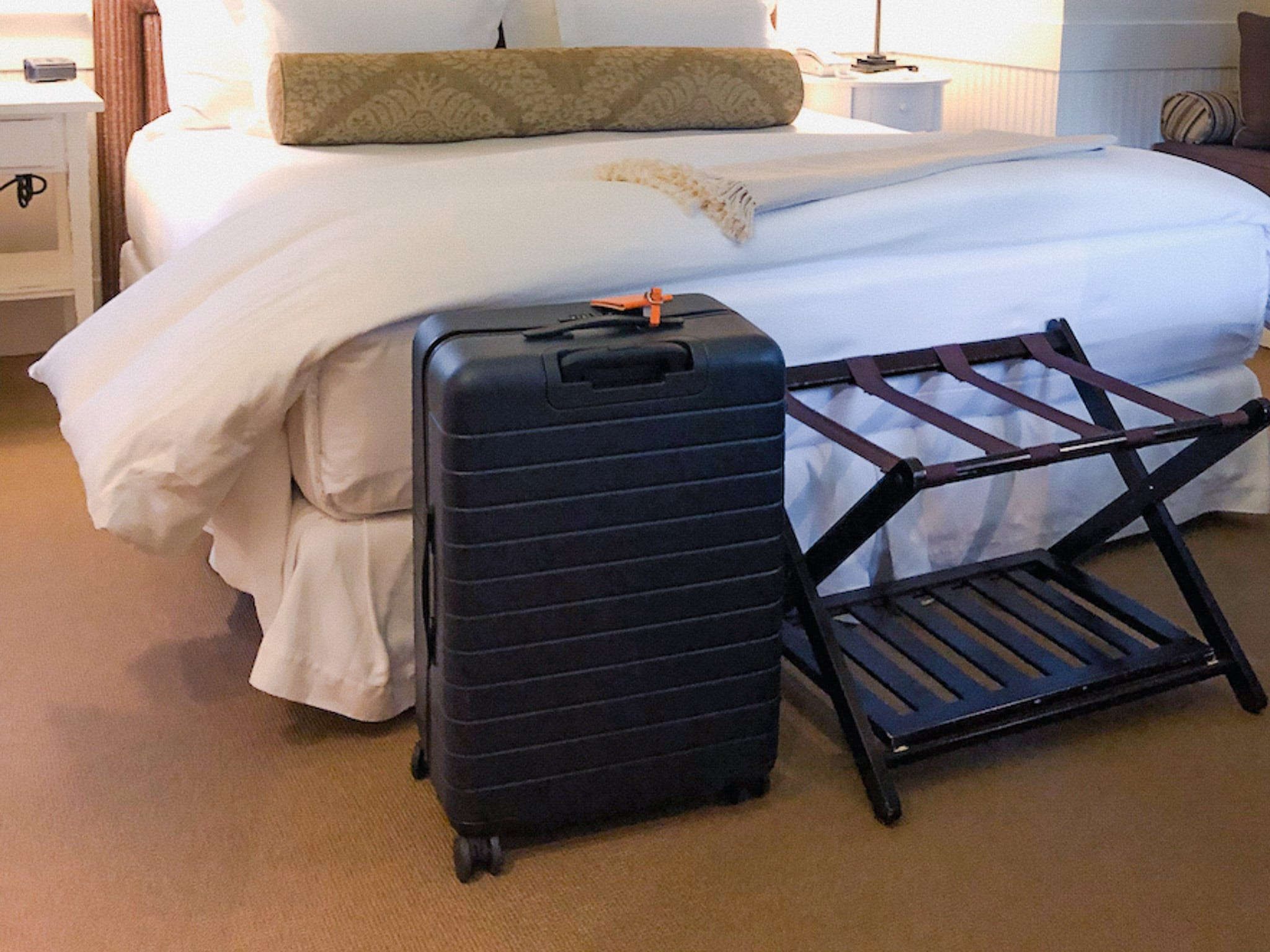 Away Suitcase
Away Suitcase
7.5. How Can I Manage Stress And Mental Wellness During My Trip?
Take care of your mental health while traveling:
- Practice Mindfulness: Practice mindfulness and meditation to reduce stress and anxiety.
- Stay Connected: Stay connected with friends and family through phone calls, messages, and video chats.
- Take Breaks: Take regular breaks from driving and sightseeing to relax and recharge.
- Get Enough Sleep: Aim for 7-8 hours of sleep each night to maintain your physical and mental health.
- Engage In Enjoyable Activities: Engage in activities that you enjoy, such as reading, listening to music, or pursuing hobbies.
8. Road Travel Tips About Legal Requirements
8.1. What Are The Legal Requirements For Driving In Vietnam?
Understand the legal requirements for driving:
- Valid Driver’s License: You must have a valid driver’s license from your home country. An International Driving Permit (IDP) is often required.
- Vehicle Registration: Ensure the vehicle is properly registered and insured.
- Traffic Laws: Familiarize yourself with Vietnamese traffic laws and regulations.
- Helmet Law: Always wear a helmet when riding a motorbike.
- Alcohol Limit: Be aware of the legal alcohol limit for driving and avoid driving under the influence.
8.2. How Do I Obtain An International Driving Permit (IDP)?
Get an IDP before your trip:
- Check Eligibility: Ensure you are eligible to obtain an IDP based on your driver’s license and nationality.
- Apply At An Authorized Agency: Apply for an IDP at an authorized agency in your home country, such as AAA or CAA.
- Provide Required Documents: Provide the necessary documents, including your driver’s license, passport photos, and application form.
- Pay The Fee: Pay the required fee to process your IDP application.
- Receive Your IDP: Once approved, you will receive your IDP, which is valid for one year.
8.3. What Insurance Coverage Do I Need For Road Travel In Vietnam?
Ensure you have adequate insurance:
- Vehicle Insurance: Ensure the rental vehicle has comprehensive insurance coverage.
- Travel Insurance: Purchase travel insurance that covers medical expenses, trip cancellations, and other emergencies.
- Personal Liability Insurance: Consider purchasing personal liability insurance to protect yourself from legal liabilities.
- Check Policy Details: Review the policy details carefully to understand the coverage limits and exclusions.
- Keep Insurance Documents: Keep copies of your insurance documents with you during your trip.
8.4. What Should I Do If I Have A Legal Issue While Traveling?
Know how to handle legal issues:
- Stay Calm: Remain calm and composed when dealing with legal issues.
- Seek Legal Advice: Contact a local lawyer or legal professional for advice and assistance.
- Contact Your Embassy: Contact your embassy or consulate for support and guidance.
- Gather Evidence: Collect any relevant evidence, such as photos, documents, and witness statements.
- Follow Legal Procedures: Follow the legal procedures and cooperate with local authorities.
8.5. What Are The Laws Regarding Alcohol And Drug Use While Driving?
Be aware of the laws regarding alcohol and drug use:
- Alcohol Limit: Be aware of the legal alcohol limit for driving, which is very strict in Vietnam.
- Avoid Driving Under The Influence: Do not drive under the influence of alcohol or drugs.
- Penalties: Be aware of the penalties for driving under the influence, which can include fines, license suspension, and imprisonment.
- Drug Laws: Be aware of the laws regarding drug use and possession, which are very strict in Vietnam.
- Comply With Law Enforcement: Comply with law enforcement officers and cooperate with their investigations.
9. Road Travel Tips About Technology Integration
9.1. What Are The Best Gadgets For Road Travel?
Enhance your road trip with useful gadgets:
- GPS Navigation System: A reliable GPS navigation system to guide you on your route.
- Dash Cam: A dash cam to record your drives and provide evidence in case of an accident.
- Portable Charger: A portable charger to keep your devices powered up on the go.
- Bluetooth Speaker: A Bluetooth speaker to enjoy music and podcasts while driving.
- Car Phone Mount: A car phone mount to securely hold your phone for navigation and hands-free calling.
9.2. How Can I Use GPS And Navigation Apps Effectively?
Utilize GPS and navigation apps:
- Download Offline Maps: Download offline maps to use without an internet connection.
- Plan Your Route: Plan your route in advance and save it on the app.
- Use Voice Navigation: Use voice navigation for hands-free guidance while driving.
- Monitor Traffic Conditions: Monitor traffic conditions and adjust your route as needed.
- Explore Points Of Interest: Use the app to explore points of interest, such as restaurants, hotels, and attractions.
9.3. What Are The Best Music And Podcast Apps For Entertainment?
Stay entertained with music and podcasts:
- Spotify: A music streaming app with a vast library of songs and playlists.
- Apple Music: A music streaming app with curated playlists and personalized recommendations.
- Podcast Apps: Podcast apps like Apple Podcasts, Spotify, and Google Podcasts for listening to your favorite shows.
- Audiobook Apps: Audiobook apps like Audible for listening to audiobooks during long drives.
- Download Content Offline: Download music, podcasts, and audiobooks offline to enjoy without an internet connection.
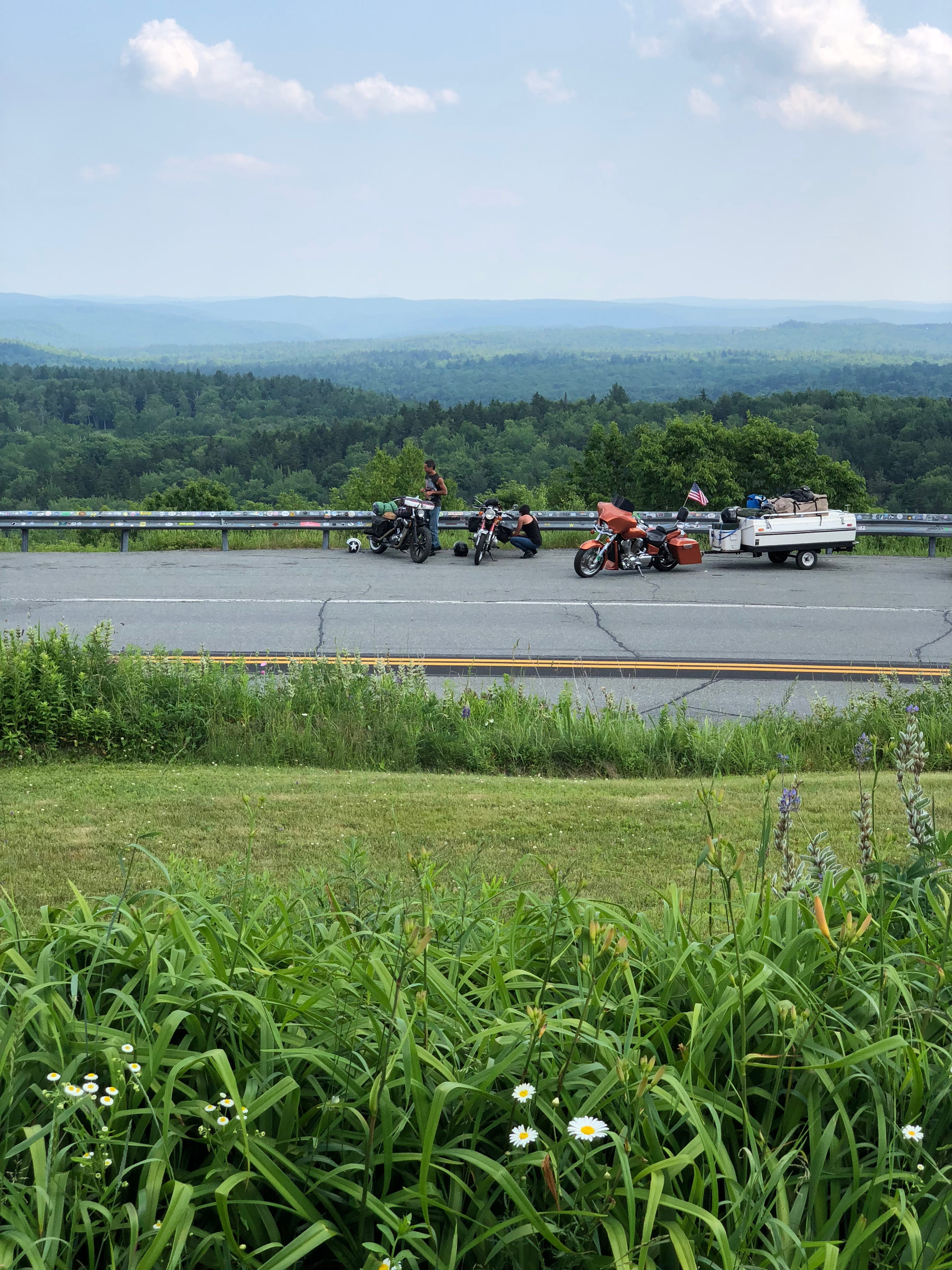 Scenic Overlook
Scenic Overlook
9.4. How Can I Use Social Media To Enhance My Road Trip?
Use social media to connect and share:
- Share Your Experiences: Share photos and videos of your road trip on social media.
- Connect With Other Travelers: Connect with other travelers and share tips and recommendations.
- Follow Local Pages: Follow local tourism pages and influencers for insights and inspiration.
- Use Hashtags: Use relevant hashtags to increase the visibility of your posts.
- Stay Updated: Stay updated on local events, festivals, and news through social media.
9.5. How Can I Back Up My Photos And Data While Traveling?
Protect your memories and information:
- Use Cloud Storage: Use cloud storage services like Google Drive, Dropbox, or iCloud to back up your photos and data.
- Carry An External Hard Drive: Carry an external hard drive to back up your photos and data offline.
- Use A USB Drive: Use a USB drive to create backup copies of important documents and files.
- Enable Automatic Backups: Enable automatic backups on your devices to ensure your data is regularly backed up.
- Store Backups Securely: Store backups in a safe and secure location, away from potential theft or damage.
10. Road Travel Tips About Local Culture And Etiquette
10.1. What Are The Key Cultural Differences To Be Aware Of?
Be mindful of cultural differences:
- Respect For Elders: Show respect for elders and senior citizens.
- Modest Dress: Dress modestly, especially when visiting religious sites.
- Remove Shoes: Remove your shoes before entering someone’s home or certain religious areas.
- Use Both Hands: Use both hands when giving or receiving items as a sign of respect.
- Avoid Public Displays Of Affection: Avoid public displays of affection.
10.2. How Can I Communicate Effectively With Locals?
Communicate effectively and respectfully:
- Learn Basic Phrases: Learn basic Vietnamese phrases, such as “hello,” “thank you,” and “excuse me.”
- Speak Slowly And Clearly: Speak slowly and clearly when communicating with locals.
- Use Gestures: Use gestures and visual aids to supplement your communication.
- Be Patient: Be patient and understanding when communicating with locals who may not speak English fluently.
- Use Translation Apps: Use translation apps to translate languages and facilitate communication.
10.3. What Are The Best Ways To Engage With Local Communities?
Engage respectfully with local communities:
- Visit Local Markets: Visit local markets and interact with vendors.
- Attend Local Events: Attend local festivals, ceremonies, and cultural events.
- Take A Cooking Class: Take a cooking class to learn about Vietnamese cuisine and culture.
- Stay At A Homestay: Stay at a homestay to experience local hospitality and culture.
- Volunteer: Volunteer with local organizations to support community development.
10.4. How Can I Avoid Cultural Misunderstandings?
Avoid cultural misunderstandings:
- Do Your Research: Research Vietnamese culture and etiquette before your trip.
- Observe Local Customs: Observe local customs and practices and follow their lead.
- Ask Questions: Ask questions to clarify any uncertainties or misunderstandings.
- Be Respectful: Be respectful of local customs, traditions, and beliefs.
- Be Open-Minded: Be open-minded and willing to learn about different cultures.
10.5. What Are Some Common Vietnamese Customs And Traditions?
Learn about common customs and traditions:
- Tet Nguyen Dan (Lunar New Year): The most important festival in Vietnam, celebrating the arrival of spring.
- Mid-Autumn Festival: A harvest festival celebrated with mooncakes, lanterns, and lion dances.
- Water Puppet Shows: Traditional water puppet shows depicting Vietnamese folklore and legends.
- Incense Burning: Burning incense at temples and ancestral altars as a sign of respect and devotion.
- Tea Culture: The tradition of drinking tea, which is an integral part of Vietnamese social life.
FAQ About Road Travel Tips
What is the most important road travel tip?
Planning your route and stops ahead of time ensures a smooth and enjoyable trip.
How can SIXT.VN help with road travel in Vietnam?
SIXT.VN offers reliable car rental services, detailed travel advice, and 24/7 support for a seamless journey.
What should I do if I get a flat tire during my road trip?
Move to a safe location, use hazard lights, and either change the tire yourself or call for roadside assistance.
How can I stay safe while driving in Vietnam?
Obey traffic laws, wear a helmet, drive defensively, and avoid night driving.
What are some must-try Vietnamese dishes during my road trip?
Pho, Banh Mi, Goi Cuon, and Cao Lau are essential culinary experiences.
How can I save money on a road trip in Vietnam?
Choose local guesthouses, eat at local eateries, and travel during off-peak seasons.
What apps should I use for navigation during my road trip?
Google Maps and Grab are essential for navigation and transportation.
How can I stay connected to the internet while traveling in Vietnam?
Buy a local SIM card or use public Wi-Fi hotspots.
What are the legal requirements for driving in Vietnam?
A valid driver’s license, International Driving Permit (IDP), and vehicle registration are required.
How can I promote sustainable tourism during my road trip?
Minimize waste, support green businesses, and respect local communities.
Conclusion: Your Vietnam Road Trip Awaits
Ready to embark on an unforgettable Vietnam road trip? With these road travel tips, your adventure promises to be smooth, safe, and culturally rich. Let SIXT.VN be your trusted partner, providing top-notch car rental services and expert guidance every step of the way. Start planning your dream road trip today and discover the wonders of Vietnam with confidence and ease!
Address: 260 Cau Giay, Hanoi, Vietnam
Hotline/Whatsapp: +84



